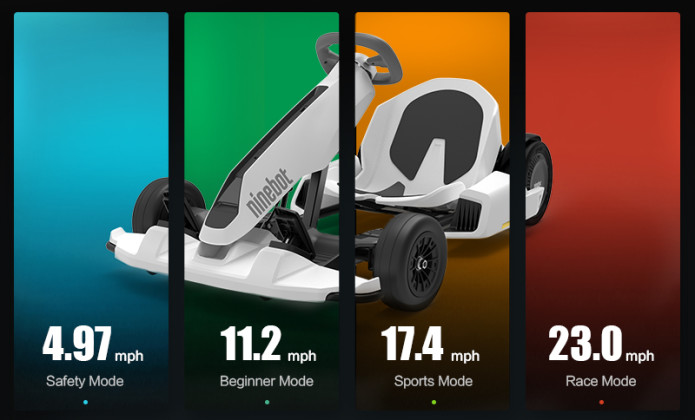
Segway-Ninebot has just opened orders in North America for a new version of the company’s self-balancing electric scooter, the Ninebot S Max.
Unlike conventional electric scooters of the Bird and Lime variety, the Ninebot S Max uses the hoverboard-style parallel wheel design.
The previous version of the scooter offered by Ninebot included a center pillar that reached just short of the rider’s knees. Riders pressed against the pillar with their legs to control steering.
The new Ninebot S Max can be operated in this way, but it also includes an extendable pillar that sports a steering wheel. The steering wheel doesn’t actually turn, but appears to be leaned left and right like a control column or yoke.
The new design is likely to improve comfort and stability by allowing riders to also hold on with their hands.
The steering wheel also includes a built-in display that allows riders to monitor the device’s speed in real time.

Functionally, the Ninebot S Max looks more akin to the classic Segway self-balancing transporter – a vehicle that the company finally killed off last year.
But at the current sale price of $849, the new Ninebot S Max is considerably less expensive than the old-school $4,000+ Segway.
The Ninebot S Max isn’t only cheaper than the previous Segway i2, it’s also lighter and more powerful. The device weighs 22.7 kg (50.2 lb) and sports a pair of 2,400W peak motors. The power isn’t used to achieve a high top speed, as the device only maxes out at 20 km/h (12.4 mph).
Instead, that power is needed to make quick fore and aft corrections to maintain balance, and also provides impressive incline climbing abilities for a self-balancing scooter.
A 432 Wh battery provides a range of 38 km (23.6 mi).

Riders can use the device hands-free by removing the steering wheel attachment and instead using their knees to control the steering like in previous models.
The Ninebot S Max can also be incorporated into Ninebot’s popular go-kart attachment, turning the combo into a 4.8 kW go-kart and unlocking a higher 37 km/h (23 mph) top speed, though the range drops to 25 km (15.5 miles).
Segway-Ninebot has previously offered the Ninebot Gokart PRO for around $1,999, but users can add the Ninebot S Max to the company’s Gokart kit and achieve the same performance for a total of $1,698.
For anyone rocking the Gokart kit with the old Ninebot S self-balancing scooter, the new model debuting today can be swapped in easily and offers a nice performance boost.

Segway-Ninebot is now taking pre-orders on Indiegogo at the $849 sale price and expects to begin delivery in April.
Indiegogo has become a common platform for launching new personal electric vehicles, and Segway-Ninebot has used the platform several times over the last few years for everything from electric dirt bikes to electric mopeds.
FTC: We use income earning auto affiliate links. More.





Comments